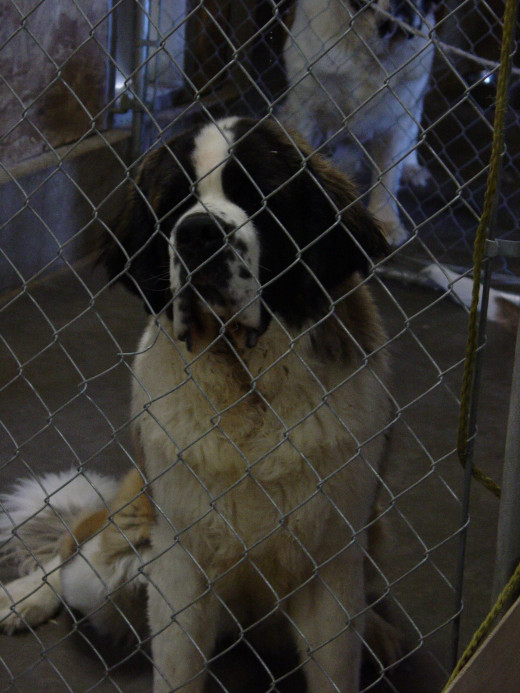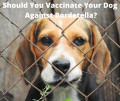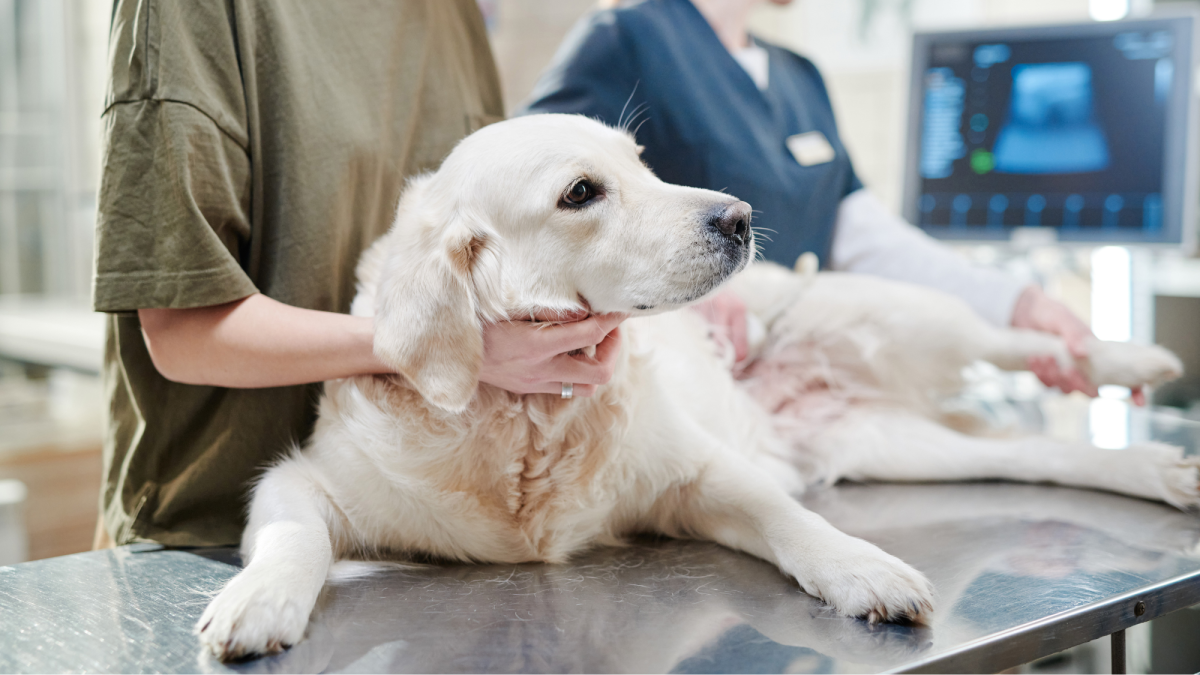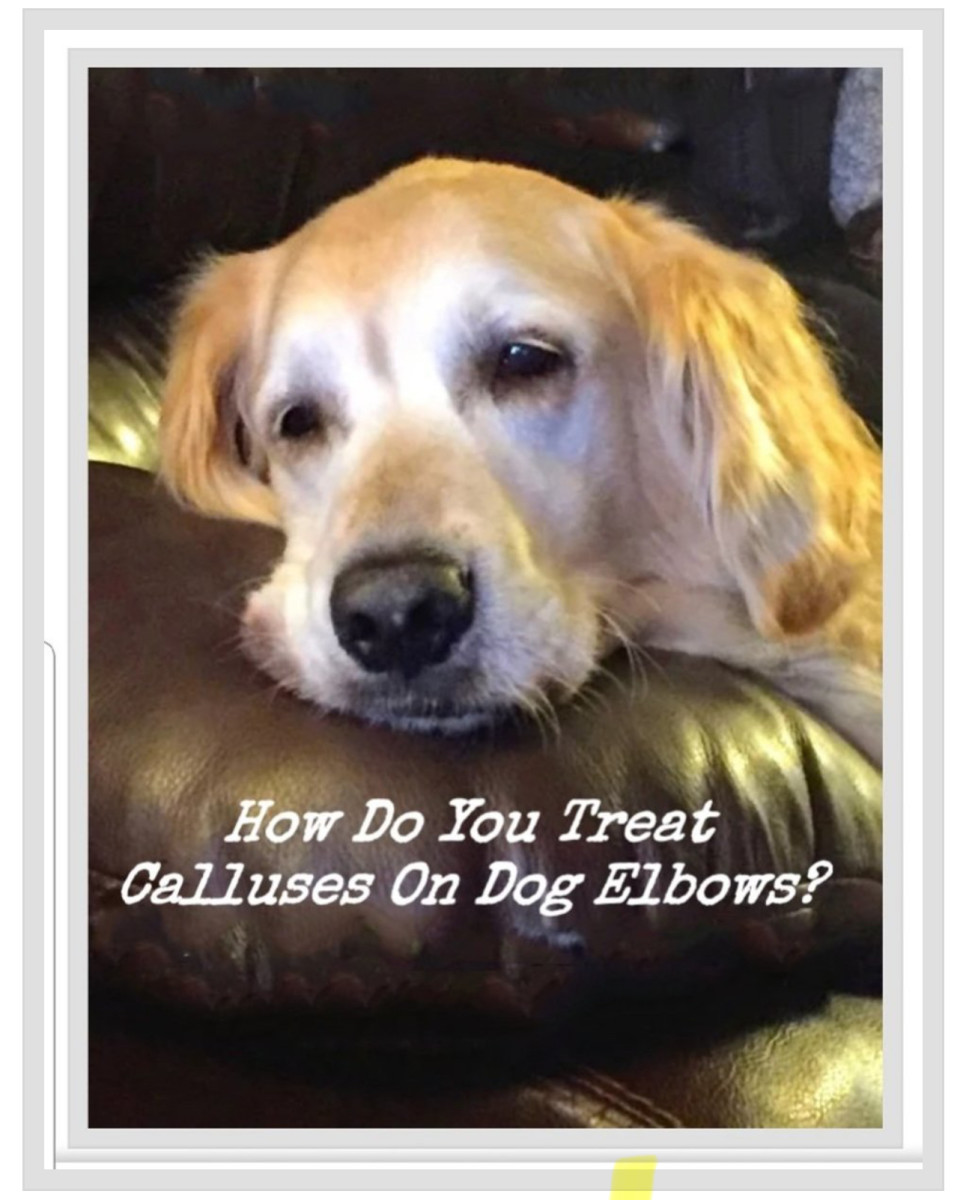- HubPages»
- Pets and Animals»
- Dogs & Dog Breeds»
- Dog Health
Importance of Vaccines: Puppies and Dogs
Why Vaccinate?
Let's get this strait right off the bat. Your veterinarian will not recommend anything that is going to hurt your dog. They are not going to try to overdose your dog, and they are most certainly not trying to make your dog sick. I won't go into the debate with human vaccines, but I will say that most people that don't believe in human vaccines also don't believe in preventive care with their pets. But, let's think about this logically. Parvo is a nasty, horrible disease that is common in puppies. If your puppy tests positive for parvo you have three options: treat, do nothing, or euthanize. The sad thing is, sometimes even if you do try to treat you are going to spend a lot of time and money and chances are very high that your dog will not make it. (I hate it say it but there are some people out there that will play your emotions and try to convince you to treat diseases like this. Personally, I think it is usually better to euthanize as the pet is just likely to suffer longer and likely to die a painful death in the end.) That is not to say that parvo cannot be treated, I have seen it happen. Once. Trust me that was one lucky dog.
Back to the topic. It is significantly cheaper to vaccinate than it is to treat. Vaccines keep dogs healthy. Some vaccines, like the rabies vaccine, are required by law. In fact, the rabies vaccine even helps keep people safe and healthy. In places where the rabies vaccine is required for pets cases of rabies in humans have dropped significantly. That does not mean we have eradicated the disease, as it still exists in the wild animal populations.
In short, vaccines are there to help your dog live a happy, healthy, and long life.
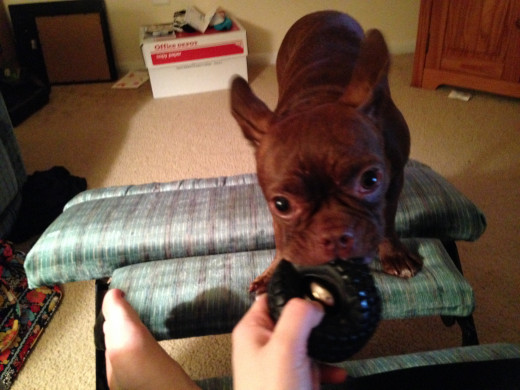
Core Vaccines
There are twovaccines that are considered to essential for dogs. In the United States these vaccines include: the rabies vaccine and parvo/distemper. The rabies vaccine protects against the rabies virus. The parvo/distemper vaccine protects dogs against the parvovirus and canine distemper, both of these diseases are very difficult to treat and can be fatal.
These vaccines are recommended for a reason. Rabies can be spread easily to humans through the bite of an infected animal. If your dog bites a human or another dog it will need to go through quarantine, typically a 10 day period. If your dog exhibits any unusually behavior during quarantine they will test it for rabies. How are dogs tested for rabies? The animal is euthanized and the head is removed to examine the brain tissue. The moral of the story here is to keep your dog up to date on the rabies vaccine. The pavovirus is easily spread from puppy to puppy in a litter and often ends in death. The canine distemper disease, while not always fatal, will leave surviving dogs with lifelong health issues that can ultimately kill the animal, and nearly always have the dog suffer undue pain for the rest of its life.

Would you vaccinate your dog?
Talk with the Experts
Before deciding on which vaccines to get for your dog or puppy talk with your veterinarian. They know what is in the area and what your dog needs. There are even some diseases that can be passed from your dog to you, these are called zoonotic diseases. Leptospirosis, is a bacteria that can be spread from wildlife, to your dog, to you. While rare to be passed to people, the threat is still there.
Non-Core Vaccines
There may be more vaccines recommend than just the core vaccine group depending on where you live. For example, in Virginia it is recommended that dogs receive the lyme and leptospirosis vaccines. This is because the deer tick, which carries lyme disease, is prevalent in this area. Lyme disease is just as bad in dogs as it is in people. Leptospirosis is a disease that pets can get from drinking water contaminated with urine of another animal with leptospirosis. This disease can be deadly, as it can lead to kidney and liver failure.
There are some areas that recommend the canine influenza vaccine. Think of it in the same terms of the human influenza virus. If your dog is going to be in a setting where it is likely to be exposed to other dogs frequently and this virus is going around you might want to strongly consider vaccinating your dog. If your dog does not get boarded, go to the groomers, or visit the dog park then chances are your dog does not need this vaccine.
The bordetella vaccine is unique in that it can be given as an injection or as a spray through the nose. Most veterinarians will recommend using the spray as it is considered to be slightly more effective. bordetella protects against kennel cough; a highly infectious respiratory infection that is easily spread between dogs. Kennel cough is typically seen in dogs that frequently visit kennels, the groomers, doggy daycare, or dog parks. For the protection of the dogs in their care there are many kennels, groomers, and dog parks that require documentation of up to date vaccinations for rabies, parvo/distemper, and bordetella (and even the influenza vaccine in some areas).
How Often Should Vaccine be Given?
This depends on your location, the age of the dog, and if it has ever received the vaccine before. Puppies will need boosters of some vaccines, like lepto and lyme, every three weeks or so to make them effective. Typically once core vaccines are considered effective, the bolstering stage is done, the vaccines are good for one year. After one year they will be bolstered again, then they will be good for three years.
None core vaccines might need to be given more often. Depending on how at risk your dog is it might need the bordetella vaccine every six months to make sure your dog is protected against the disease. However, if your dog is like mine and only interacts with other dogs while on walks, never goes to the kennel, groomer, and rarely goes to the dog park, once a year is considered to be sufficient. The lepto and lyme vaccines might also be recommended to be bolstered annually depending upon where you live.
Who Should Vaccinate Your Dog?
I'm not really sure why this question is necessary, but you would be surprised at what I see at the vet clinic. In some states it is perfectly legal to purchase canine vaccines and administer them at home to your animal yourself. If you work in the animal field, know how to administer the vaccines, and know how to treat possible vaccine reactions that's fine. However, I have an issue with the average person trying to administer vaccines to their animals. If it is done wrong the vaccines are no good. If they are not stored properly the vaccines are no good. Yet, because you personally administered them you believe them to be fine and working. This puts your dog at risk.
No matter where you live in the United States the rabies vaccine must be administered by a licensed veterinarian. This is because most cities or states require documentation that the vaccine was administered properly.
There are many breeders that will vaccinate puppies before sending them home. Some of them will even charge more for the puppy because it has received its first round of vaccines. However, in most cases it is best to pass on these vaccines. Not all veterinarians will acknowledge these vaccines as there is no proof that they were stored properly, not expired, and administered correctly.
Vaccine Reactions
Just like with people dogs can be allergic to things. There are many different kinds of reactions, some are minor and some are life threatening. I was allergic to oranges when I was younger, but it was a mild reaction with hives that eventually went away on their own. Sure, they were annoying, but I was in no danger of dying. I simply didn't drink orange juice or eat oranges, but I could be around people that were. My best friend browning up was deathly allergic to peanuts. She couldn't even be in the same room as an open jar of peanut butter. She ran the risk of going into anaphylactic shock if she got too close to peanuts.
Dogs can be the same with vaccines. Most will have no reaction and show n signs of discomfort after receiving vaccines. However, some dogs do have reactions. The risk for reactions is based on age, size, breed, and sometimes even the number of vaccines received during the visit. Smaller breed dogs are more likely to have reactions.
Facial swelling, vomiting, diarrhea, pain at the vaccination site, and lethargy are some of the most common reactions. This does not mean that they should be ignored. Contact your veterinarian immediately if you notice any of these symptoms within two days of your dog receiving vaccines. Thankfully the most severe reactions, like anaphylaxis is most likely to occur before you even leave the vet's office, so your dog is likely to receive immediate care.
If your dog has ever had a vaccine reaction, or is a breed or size the is likely to have reactions your vet will most likely want to premeditate your dog before vaccines, monitor, and perhaps give more medications if need be. Essentially, your vet is giving your dog benadryl in an injectable form. If you would prefer to premeditate your dog at home before the visit talk with your vet about what to give, how much, and when to give it. Never, and I do mean never, give your dog any medications without consulting your veterinarian first. You could do more damage than good. Sometimes, preventing vaccine reactions is just as simple as spreading out the vaccines over a few days. My male cat had severe facial swelling after receiving several vaccines for the first time as an adult. The vet decided to try giving the vaccines separately over a few weeks to figure out which one he was allergic to. This action alone stopped the allergic reaction.
If your dog has ever had a life threatening reaction your vet might determine that it is not medically safe to continue to administer vaccines to your dog. In this case your vet can provide you with documentation to explain why your dog cannot have essential vaccines, like the rabies vaccine.



In the End
The choice of whether or not to vaccinate your dog is up to you. At the very least you need to ensure that all local laws are complied with, and in the United States that means the rabies vaccine. It is strongly recommended that you follow the vaccines recommended by your veterinarian, which will vary by location.
I would like to stress that vaccine reactions are not common, and severe and life threatening reactions are very rare. The benefits of vaccination far outweighs the risks. As I said earlier, it is far cheaper to vaccinate that it is to attempt to treat later. Especially when most of the time the diseases end in death no matter what treatment course you take. It is also important to note that only healthy pets should be vaccinated. This is because the immune system needs to be healthy and normal in order for the vaccines to be effective. If the immune system is fighting off an illness or infection then it cannot integrate the properties of the vaccine, rendering the vaccine innert.
Make sure that you have a veterinarian that you trust. If you don't like the way they do things, or feel like they are pushing you to get things that you don't need find a new vet.
Things to Keep in Mind
Some people are very opinionated. There is no changing their mind about their views on vaccines. Kind of like religion and politics, you have to take what they say with a grain of salt. I will just say this: your veterinarian went to school for many years to get a very expensive paper. They spent years making sure they learned everything they could to take care of your pet. Most people that refuse to vaccinate, simply believe what they have read online. If you have ever seen the Holiday Inn Express commercials its kind of like that: I stayed at a Holiday Inn Last night so that makes me a brain surgeon. I read this thing on wikipedia so now I'm an expert on everything.... Yeah, it doesn't work like that.
If you would like to do your own research I recommend these sites:
This article is accurate and true to the best of the author’s knowledge. It is not meant to substitute for diagnosis, prognosis, treatment, prescription, or formal and individualized advice from a veterinary medical professional. Animals exhibiting signs and symptoms of distress should be seen by a veterinarian immediately.
© 2014 Alexandria


